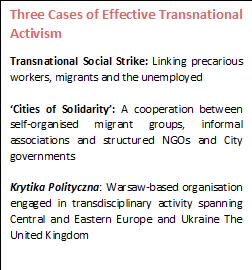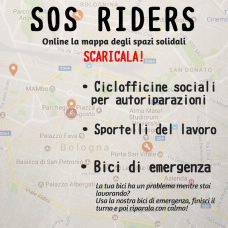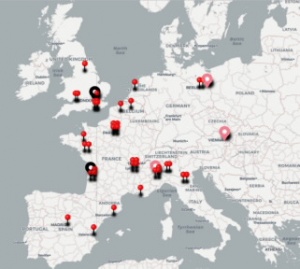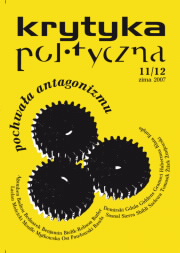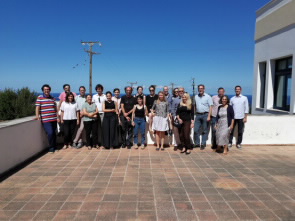Main Page
TransSOL Wiki on Good Practices
What motivates people to engage in transnational solidarity?
Transnational Civil Society Solidarity Initiatives
Contents
Best Practices
1 Inner organization: How should transnational activism be organised?
3 How can cooperation and momentum be generated between civil society and state actors?
4 Good Practices: A Public Forum
Three Cases of Effective Transnational Activism
What lessons can we learn from analysing activist organisations that have already proven to been effective? How are these networks organised? What are some of the challenges they face?
The TransSOL Project, and in particular the transnational civil society organisation European Alternatives, researched the goals, platforms, organisation, effectiveness and challenges faced by three networks that have been able to facilitate solidarity across European nations. These organisations have a lot to teach us on what works for getting people together at a grass-roots level, and for cooperating with shared aims having to do with migration, disability and employment.
Who are these organisations? What do they do?
The Transnational Social Strike began in 2014 with the aim of linking diverse movements of precarious workers, migrants and the unemployed. Rather than an institution like a trade union, it is a network of communication for the exchange of knowledge and tactics across borders. In particular, it addresses the question of how to withhold labour as a form of effective activism. The group holds regular international meetings and publishes material in several European languages.
In the past two decades, labour has become both more flexible and more precarious. The introduction of online platforms in the labour market in the last few years have reshaped and accelerated these processes, giving birth to the so-called ‘gig economy’, a system in which working activities are completed through a series of tasks facilitated by online platforms. The food delivery industry is the sector which has the most significant cases of organisation. Young adults riding on bicycles while carrying boxes marked by the logos of companies like Foodora, Deliveroo, Justeat, Glovo, and so on, are a common sight in most European cities. Customers order food from a restaurant of their choice through a website or an app, and riders deliver it as quickly as possible. Their forms of employment tend to vary significantly across countries and companies as well as the way is which they are paid. What they have in common is the fact that they are not considered to be regular employees of the food delivery platforms, but instead free-lance workers that perform a series of ‘gig’, thanks to the service provided by platforms.
The transnational social strike has increased its activities in the past few years. The “Transnational Food Platform Strike Map” built by French activists shows three protest events for 2016: the protest in front of the Deliveroo headquarters in London in August, the strike of Foodora rider in Turin in October, and the protest of Deliveroo rider in Bordeaux in December. For the following year, 2017, the same map reports 40 protest events, in 8 different countries (Austria, Belgium, France, Germany, Italy, Netherlands, Spain and the United Kingdom). This group is gaining in momentum, and linking activists across European countries.
What European Alternatives researchers have called Cities of Solidarity confronts the limitations of migration policies put in place by single national governments. Civil society has been organising in innovative ways, with numerous associations and networking experiences springing up all across the continent. These organisations focus on migrant reception, education and placement in the labour market as well as facilitate social integration processes. These initiatives meet, in a significant number of cases, with a willingness to cooperate on the part of local and municipal authorities.
These organisations have required the cooperation between self-organised migrant groups, informal associations and structured NGOs, on the one hand, and City governments on the other. At the same time, such cooperation has fostered new transnational networks, with relationships and connections built between single cities, with the aim of presenting shared proposals for asylum and migration policy and coordinating practical efforts in solving daily and long-term problems in the reception and social inclusion of migrants.
Krytyka Polityczna is a Warsaw-based civil society organisation engaged in transdisciplinary activity spanning Central and Eastern Europe and Ukraine. The organisation is involved in several initiatives, the centre of which is a journal and independent news platform. In addition, the network runs a publishing house while managing over 20 social clubs across the country. The organisation is a good example of ‘horizontal’ or geographical solidarity among and between the V4 countries and beyond, but also shows vertical political solidarity with local grassroots initiatives, bridging the divide between intellectuals and the public.
Krytyka Polityczna’s efficacy as a model is best demonstrated by its capacity to maintain cross border initiatives like these over a long period, to develop intellectual ideas not only in short individual projects but over several years at a global level and, just as importantly, at a level well-defined politically within Europe.
Why are these organisations effective at promoting European solidarity?
How should transnational activism be organised?
How can cooperation and momentum be generated between organisations and their activists?
How can cooperation and momentum be generated between civil society and state actors?
Recent Events
Sustaining Solidarity in Europe
European Solidary: Conditions, Forms, Limitations and Implications
About TransSOL
TransSOL is an EU-funded research project dedicated to describing and analysing solidarity initiatives and practices at a time in which Europe’s existence is challenged by the consequences of the 2008 economic and financial crisis, by the problematic management of large fluxes of refugees and by the outcome of the 2017 Brexit referendum. In particular, TransSOL focuses on three areas of vulnerability: migration, unemployment and disability.
